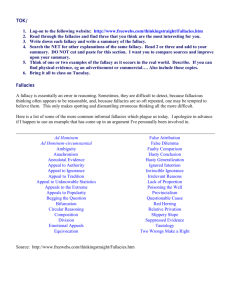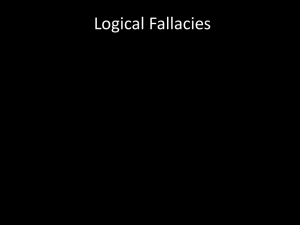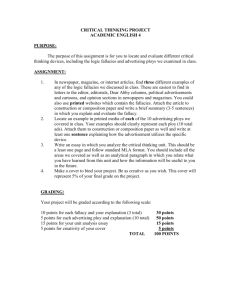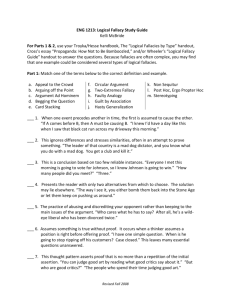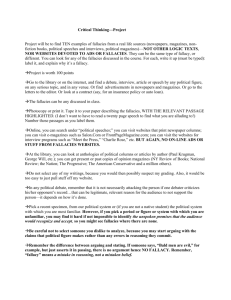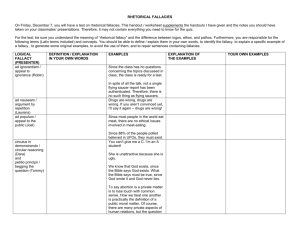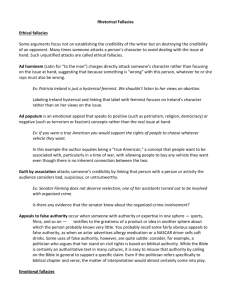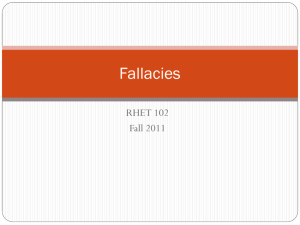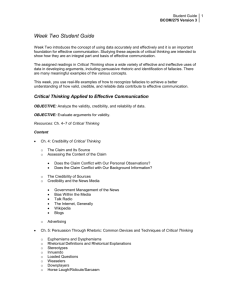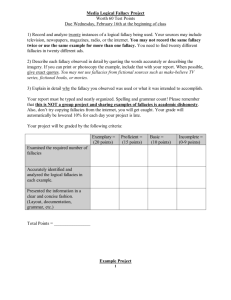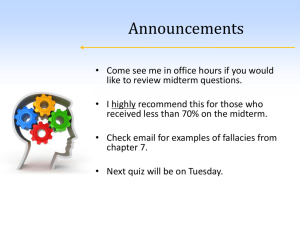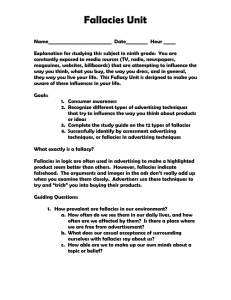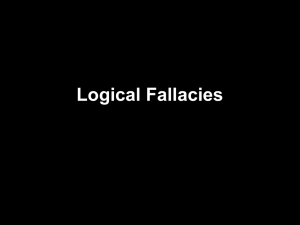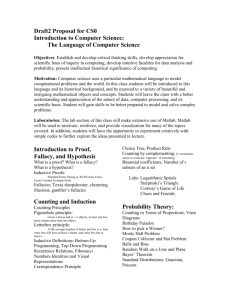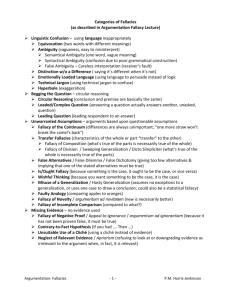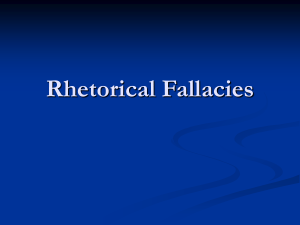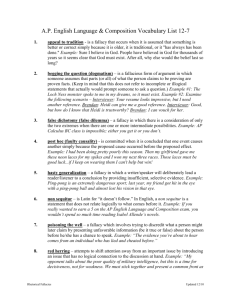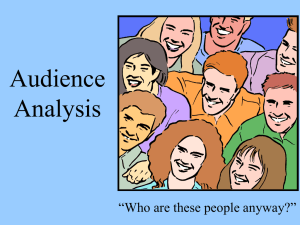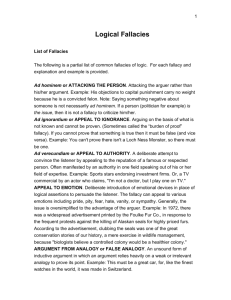Two Fallacies about History
advertisement
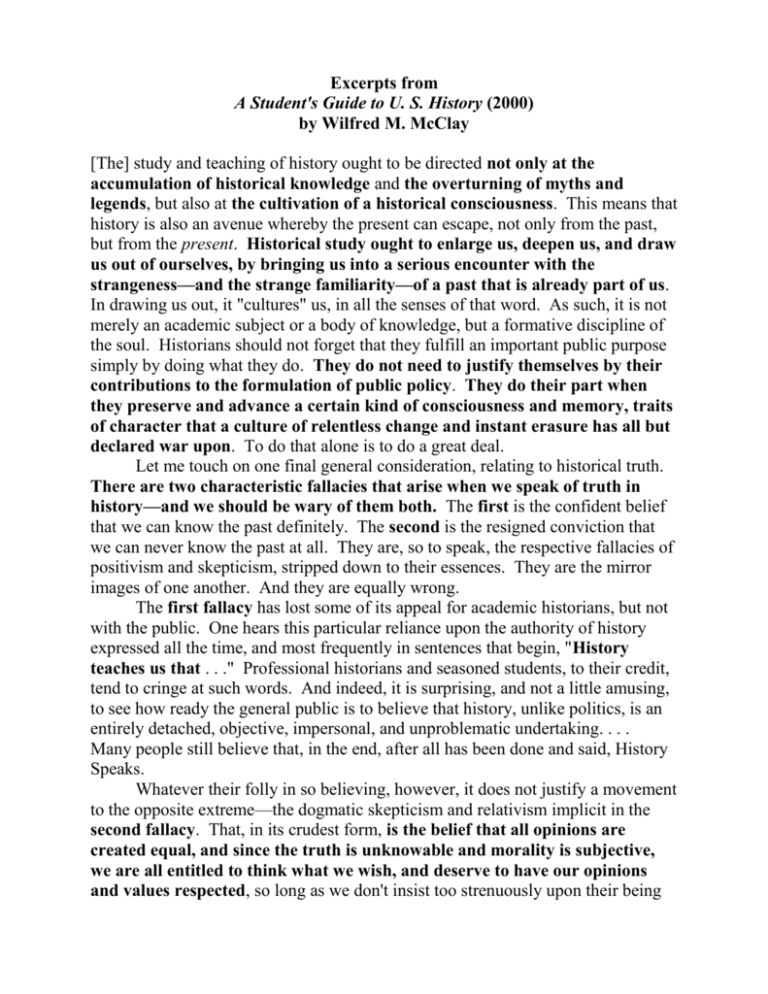
Excerpts from A Student's Guide to U. S. History (2000) by Wilfred M. McClay [The] study and teaching of history ought to be directed not only at the accumulation of historical knowledge and the overturning of myths and legends, but also at the cultivation of a historical consciousness. This means that history is also an avenue whereby the present can escape, not only from the past, but from the present. Historical study ought to enlarge us, deepen us, and draw us out of ourselves, by bringing us into a serious encounter with the strangeness—and the strange familiarity—of a past that is already part of us. In drawing us out, it "cultures" us, in all the senses of that word. As such, it is not merely an academic subject or a body of knowledge, but a formative discipline of the soul. Historians should not forget that they fulfill an important public purpose simply by doing what they do. They do not need to justify themselves by their contributions to the formulation of public policy. They do their part when they preserve and advance a certain kind of consciousness and memory, traits of character that a culture of relentless change and instant erasure has all but declared war upon. To do that alone is to do a great deal. Let me touch on one final general consideration, relating to historical truth. There are two characteristic fallacies that arise when we speak of truth in history—and we should be wary of them both. The first is the confident belief that we can know the past definitely. The second is the resigned conviction that we can never know the past at all. They are, so to speak, the respective fallacies of positivism and skepticism, stripped down to their essences. They are the mirror images of one another. And they are equally wrong. The first fallacy has lost some of its appeal for academic historians, but not with the public. One hears this particular reliance upon the authority of history expressed all the time, and most frequently in sentences that begin, "History teaches us that . . ." Professional historians and seasoned students, to their credit, tend to cringe at such words. And indeed, it is surprising, and not a little amusing, to see how ready the general public is to believe that history, unlike politics, is an entirely detached, objective, impersonal, and unproblematic undertaking. . . . Many people still believe that, in the end, after all has been done and said, History Speaks. Whatever their folly in so believing, however, it does not justify a movement to the opposite extreme—the dogmatic skepticism and relativism implicit in the second fallacy. That, in its crudest form, is the belief that all opinions are created equal, and since the truth is unknowable and morality is subjective, we are all entitled to think what we wish, and deserve to have our opinions and values respected, so long as we don't insist too strenuously upon their being "true." Such a perspective is not only wrong, but subtly disingenuous, and damaging to the entire historical undertaking. It is disingenuous, because if you scratch a relativist or a postmodernist, you invariably find something else underneath—someone who operates with a full panoply of unacknowledged absolutes, such as belief in universal human rights and in the pursuit of the highest degree of personal liberation. Generally, too, there is an assumption that history is just a tale of unjust exploitation, oppression, and domination—though just where one derives those pesky concepts of injustice, oppression, et al., which in turn presume concepts of justice and equity, is not stated. Indeed, because those absolutes are never acknowledged as such, there are rendered peculiarly nonnegotiable . . . Quite simply, it renders genuine debate and inquiry impossible. Truth is the basis of our common world. If we cannot argue constructively about historical truth and untruth, and cannot thereby open ourselves to the possibility of persuasion, then there is no reason for us to even talk . . . It may be enough to remember the two fallacies, which I will for convenience' sake dub the Fallacy of Misplaced Precision and the Fallacy of Misplaced Skepticism, as the boundary conditions one wants to avoid. Yes, the truth is elusive, and only fleetingly and partially glimpsed . . . But it is not folly to believe that the truth is there, and that we are drawn by our nature to search endlessly for it. Indeed, the real folly is in claiming otherwise. Questions: 1) Explain, in your own words, the two fallacies about history. Why are these dangerous? 2) Does either fallacy match up with your past experiences in taking history courses? 3) Evaluate the following statement: “History is a complete waste of time because it doesn’t apply to my personal everyday life. Students shouldn’t learn history (or any other discipline) unless it is directly relevant to their future jobs.” Agree or disagree? Explain & elaborate.


